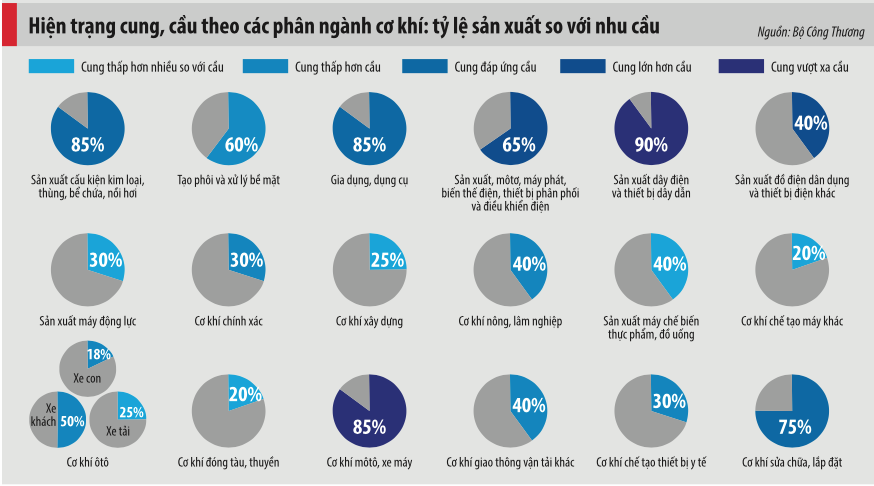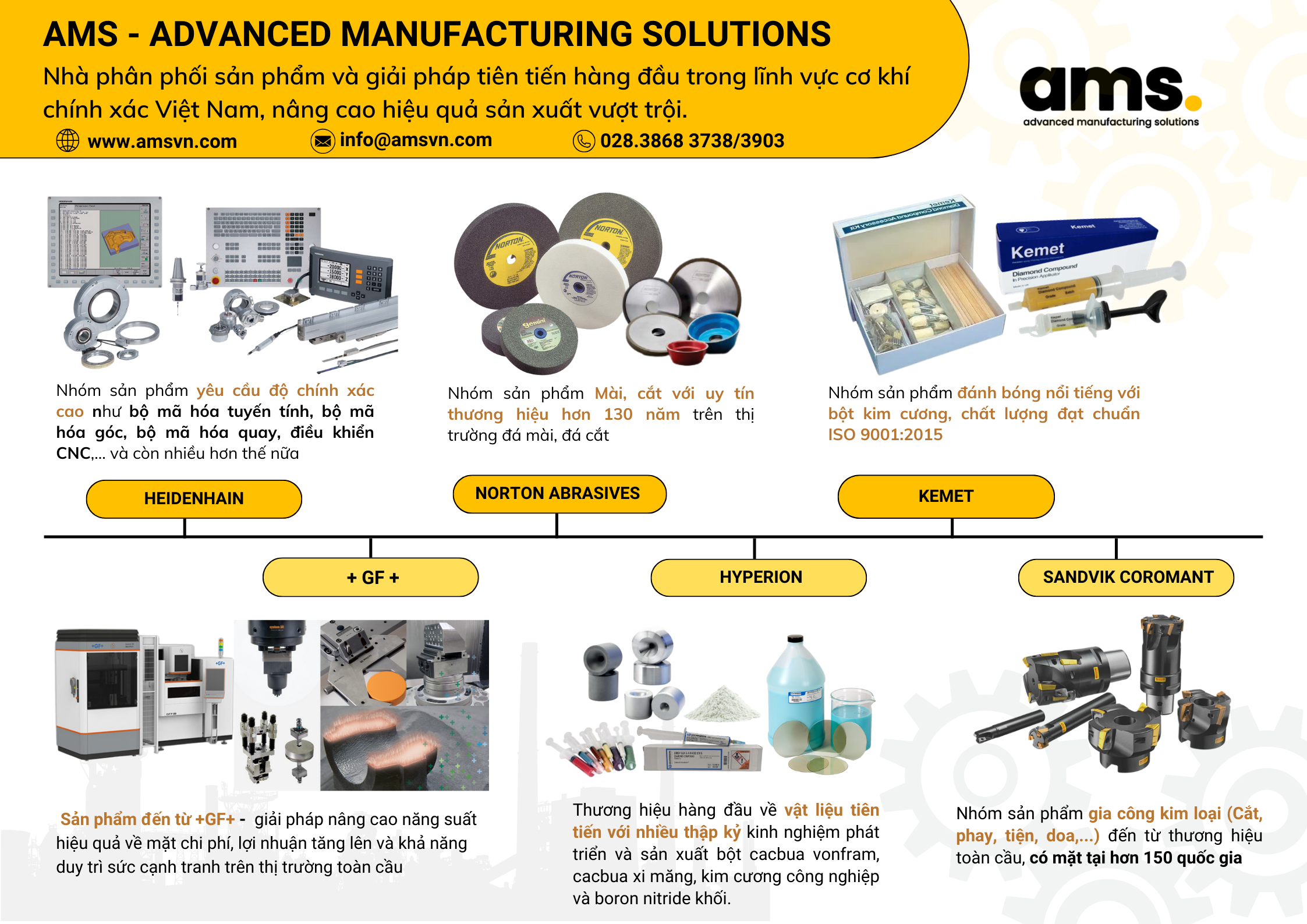Overview of Vietnam's precision engineering market
Current Status and Growth Drivers of Vietnam's Precision Engineering Industry
Precision engineering is regarded as a core component of supporting industries. Key industries such as automotive, aerospace, and motorcycles rely heavily on components like gears, parts, and engines supplied by the precision engineering sector. This indispensable role cements precision engineering as an essential supporting industry.

Precision engineering significantly influences the growth of machinery and equipment, leading to increased demand for maintenance services.
According to Vietnam’s General Statistics Office, the November 2024 Index of Industrial Production (IIP) is estimated to have grown by 2.3% compared to the previous month and 8.9% year-on-year. The processing and manufacturing sector alone saw an 11.2% increase. These growth indicators highlight the vital contributions and relentless efforts of the precision engineering industry.
Domestic production of metal components now satisfies 85-90% of the demand for motorcycle production, 15-40% for automobile manufacturing (depending on vehicle type), about 20% for integrated equipment production, 40-60% for agricultural machinery and engines, and 40% for construction machinery. However, high-tech industrial sectors are currently meeting only around 10% of their demand for metal components.
With the ongoing growth of major manufacturing industries, precision engineering is making notable strides. This progress is evidenced by the vibrant trade promotion activities organized by various authorities, showcasing large-scale events dedicated exclusively to components and precision engineering machinery throughout 2024.
In this era of advanced engineering breakthroughs, Vietnam is aligning with global trends, taking transformative steps in its industrial landscape, particularly in precision engineering. With numerous supportive policies enacted to encourage businesses to engage in this field, Vietnam’s precision engineering sector is poised for parallel growth alongside related industries.
Challenges Limiting the Industry's Development
Despite positive statistical indicators reflecting industrial growth, Vietnam still faces significant challenges that require attention. Addressing these barriers is crucial to devising effective strategies for the sustainable development of the precision engineering industry.

Limitations in Technology and Machinery: Precision engineering businesses in Vietnam have yet to invest adequately in advanced equipment such as 5-axis CNC machines and high-precision measurement tools. Production technology largely relies on imports, resulting in higher costs and challenges in technology transfer. Additionally, some industries face unmet demands due to the lack of advanced production lines and modern equipment.
Shortage of Skilled Workforce: Vietnam's training programs lack practical applications and fail to delve deeply into precision engineering. The absence of investment in practice centers equipped with modern machinery has led to subpar, impractical skill development among graduates. High-skilled engineers often prefer to work for foreign enterprises, leaving domestic companies with limited access to quality talent.
Capital and Policy Support Constraints: Precision engineering requires substantial capital investment in machinery and technology, yet many small and medium-sized enterprises (SMEs) struggle to access preferential loans. Although 2024 has seen government policies aimed at facilitating participation in supply chains and promoting industrial growth, businesses still face considerable challenges in securing funding, navigating policies, and overcoming barriers related to experience, technology, and workforce development.
Despite these significant challenges, Vietnam and its enterprises remain steadfast in their efforts to achieve new milestones in the precision engineering sector.
The Breakthrough Potential of Vietnam's Precision Engineering Market
Aligned with the national industrial development policy for 2030 and a vision for 2045 set by the Politburo, Vietnam aims for the manufacturing and processing industry to contribute approximately 30% of GDP by 2030, with the manufacturing sector accounting for over 20%. As a foundational industry, mechanical engineering plays a crucial role in socio-economic development and must be strengthened to compete effectively in the global market and international economic integration.
According to the General Statistics Office, as of October 31, the total registered foreign direct investment (FDI) in Vietnam, including new registrations, adjustments, and capital contributions or share purchases by foreign investors, reached $27.26 billion—a 1.9% increase compared to the previous year. Manufacturing plants established through FDI in Vietnam are paving the way for a brighter future for the precision engineering sector.
At AMS, we believe that the growth of Vietnam's manufacturing industry directly supports the advancement of precision engineering. As a provider of advanced technical solutions in Vietnam, particularly in precision engineering, we aspire to contribute to the development of Vietnam's manufacturing industry, fostering sustainable progress.

Conclusion
Vietnam's precision engineering industry is poised for even greater growth in the coming years. At AMS, we are proud to stand alongside our partners and valued customers in this era of industrial and mechanical success. Beyond delivering advanced technical solutions to manufacturers, we are committed to supporting businesses on their journey of long-term development. Stay connected with us to keep up with the latest news in the industry!
Compiled by AMS
AMS Company, Ltd.243/9/10D To Hien Thanh, Ward 13, District 10
Hot line: 028.3868 3738/3903 - Fax: 028.3868 3797
